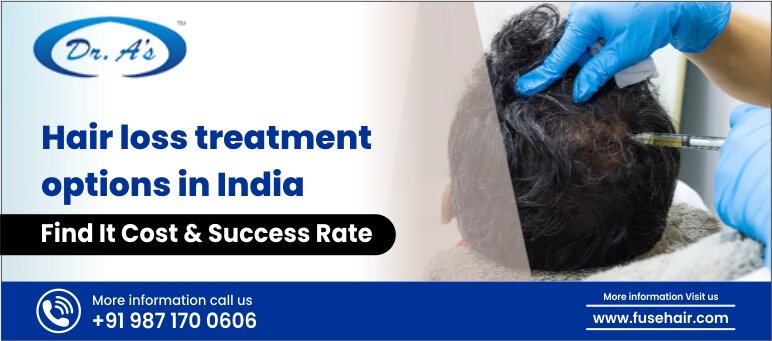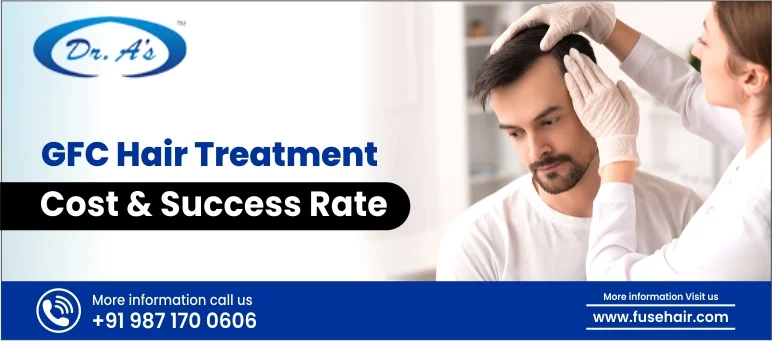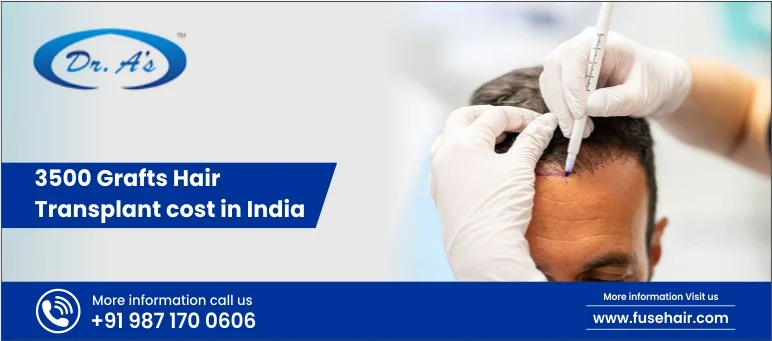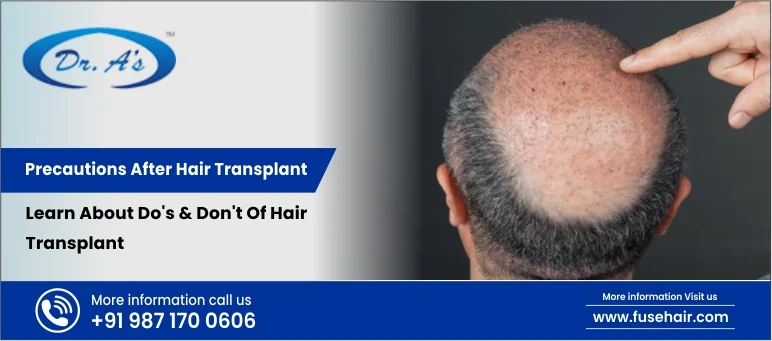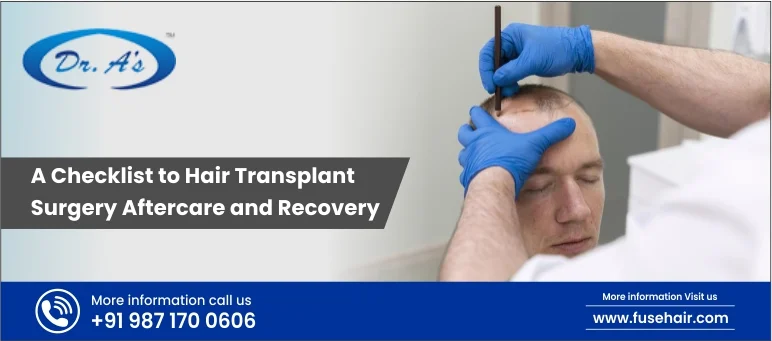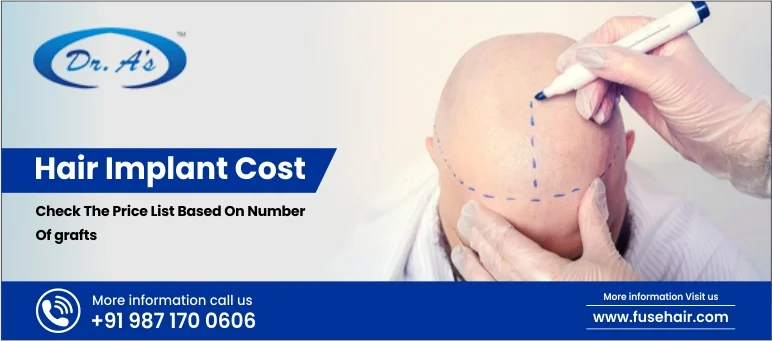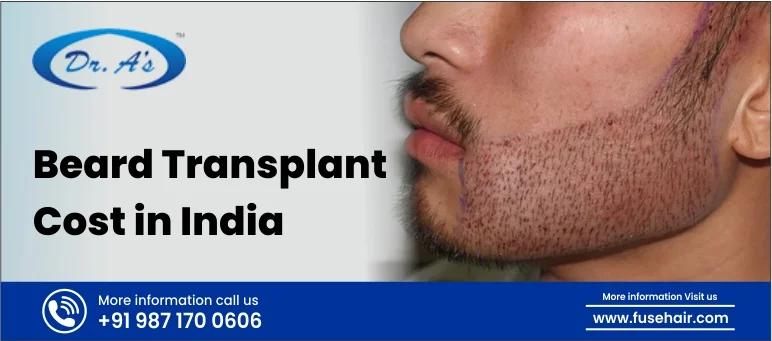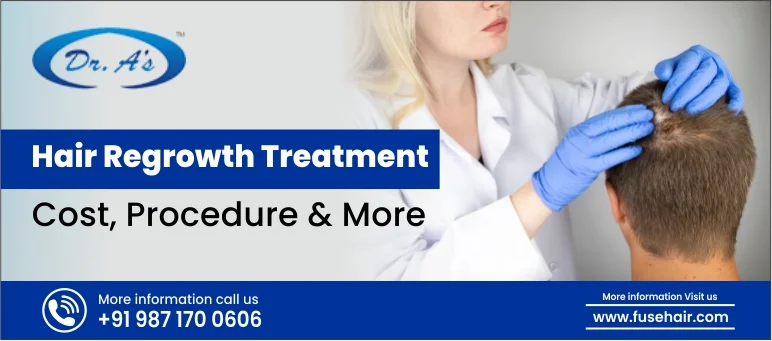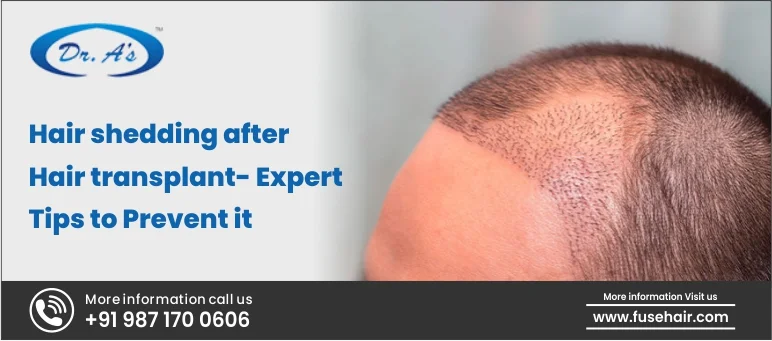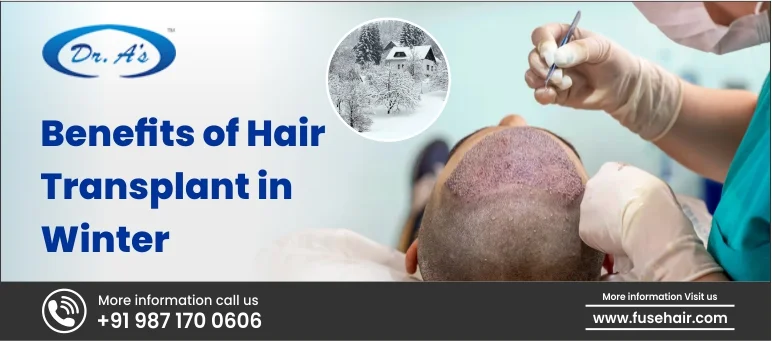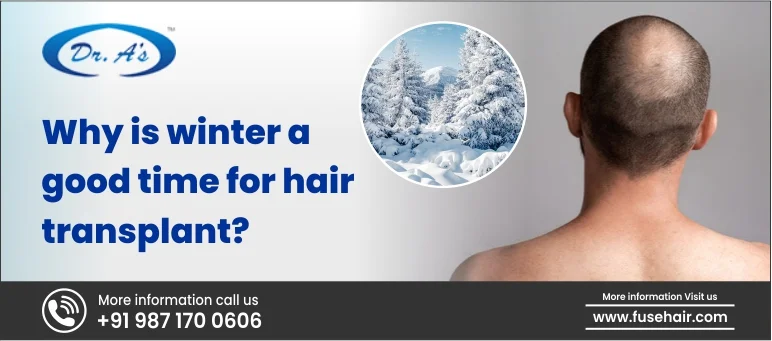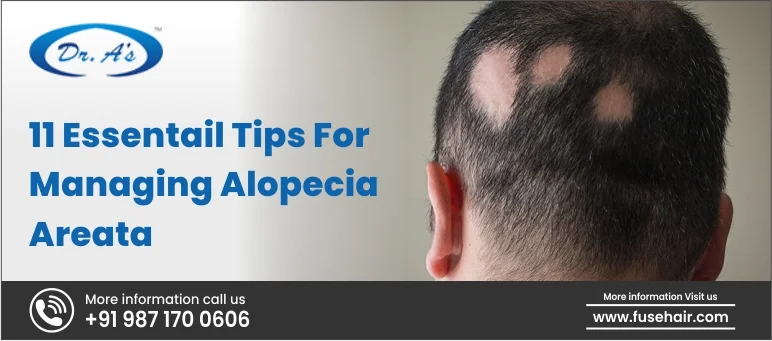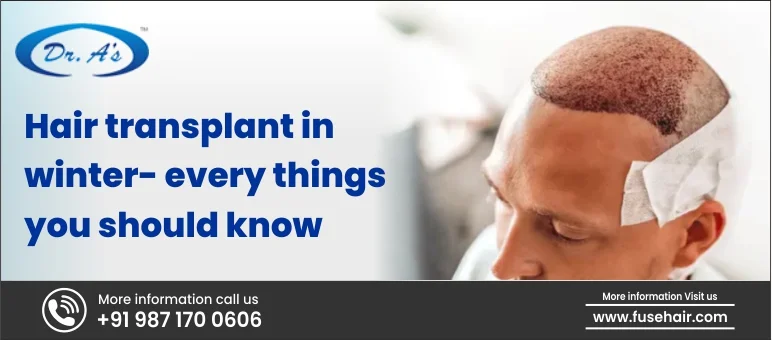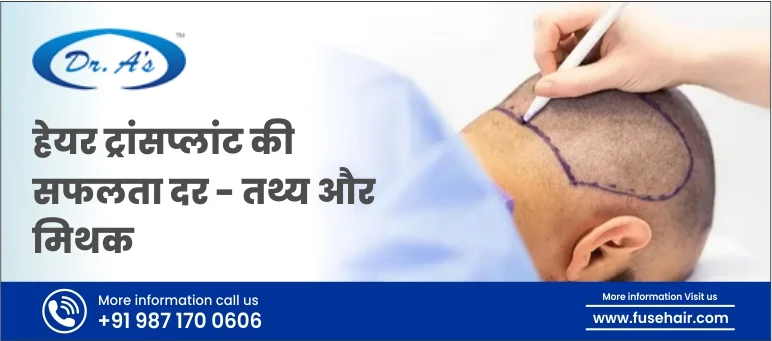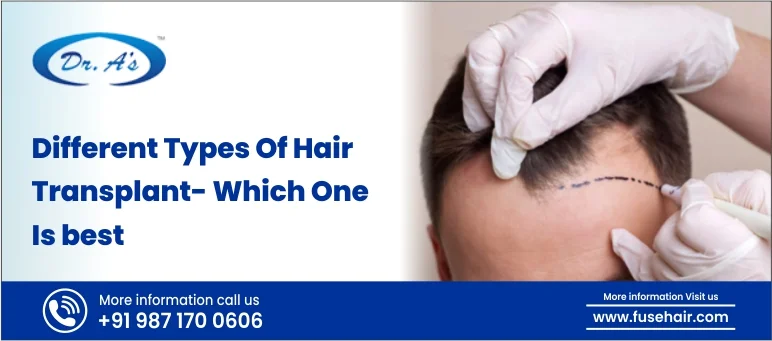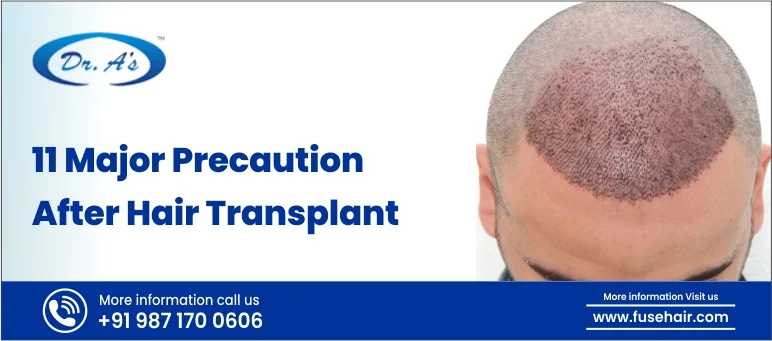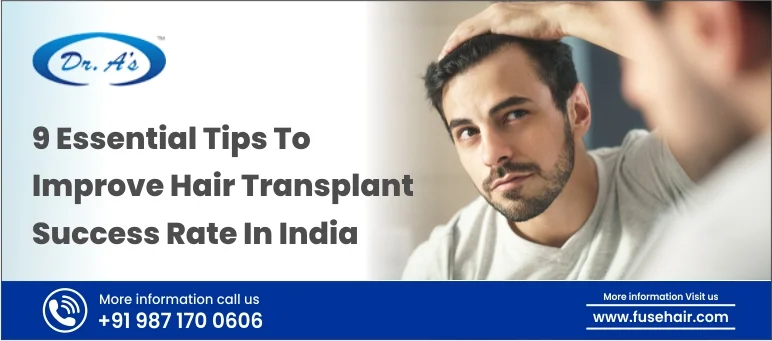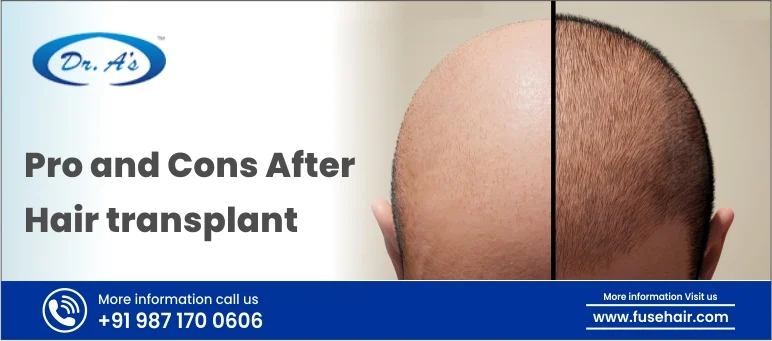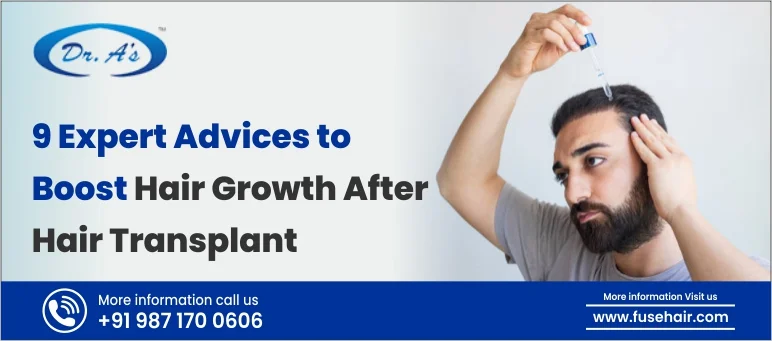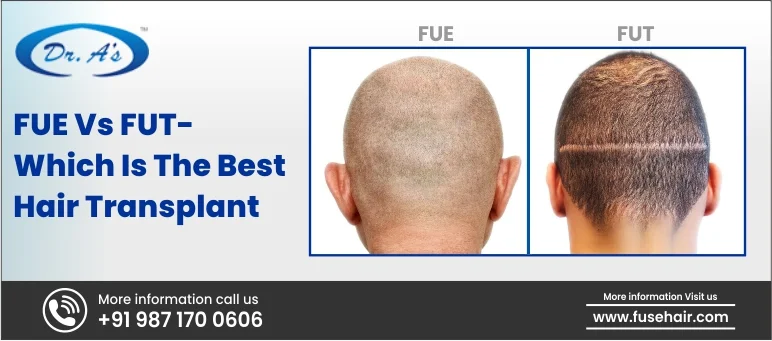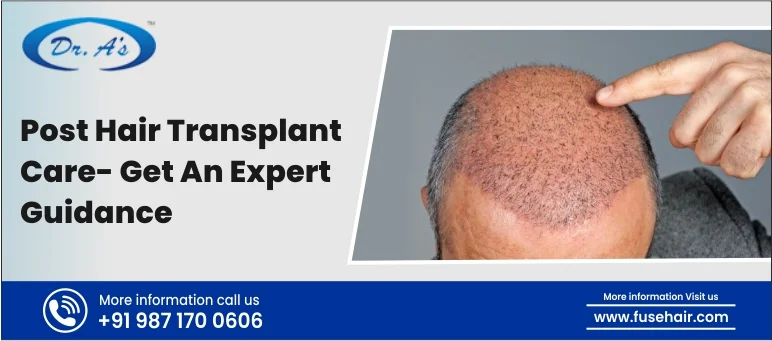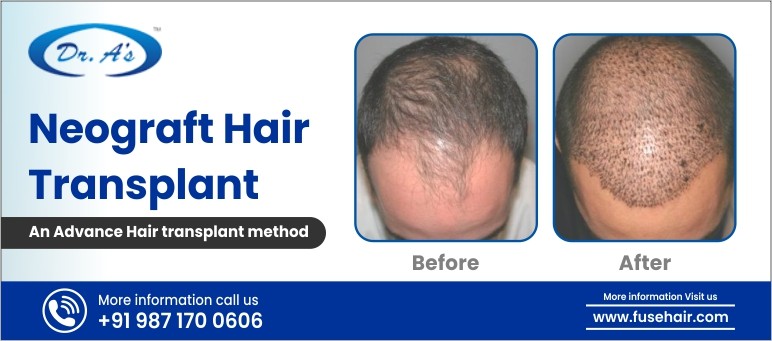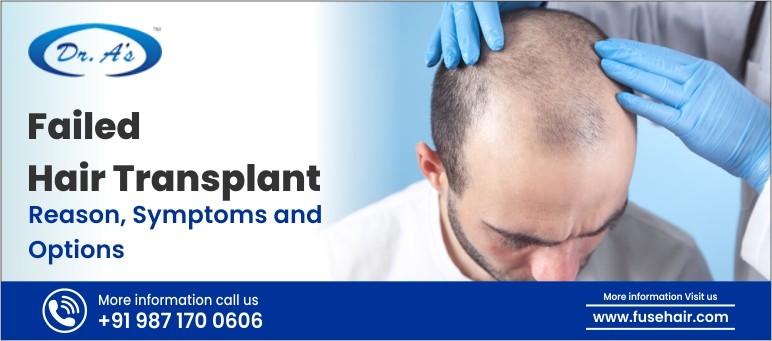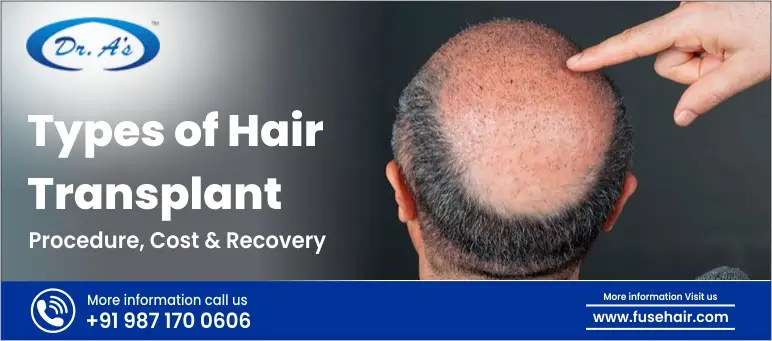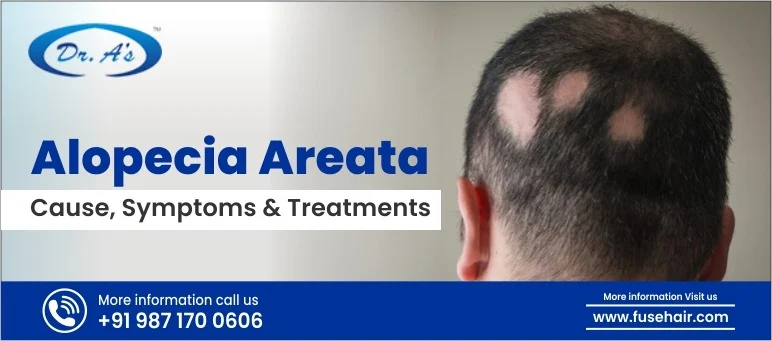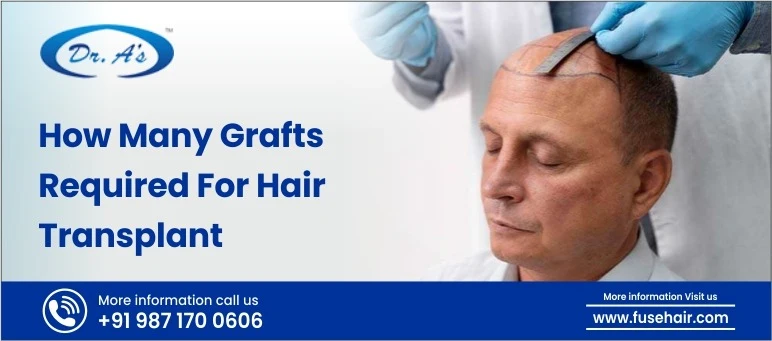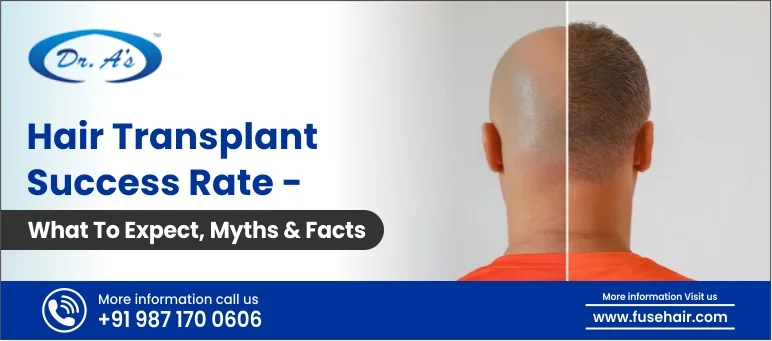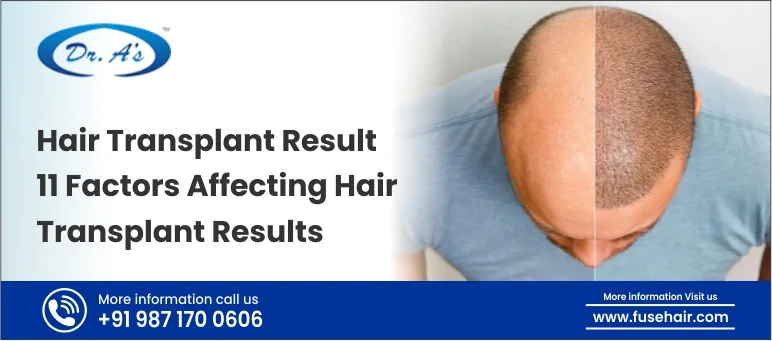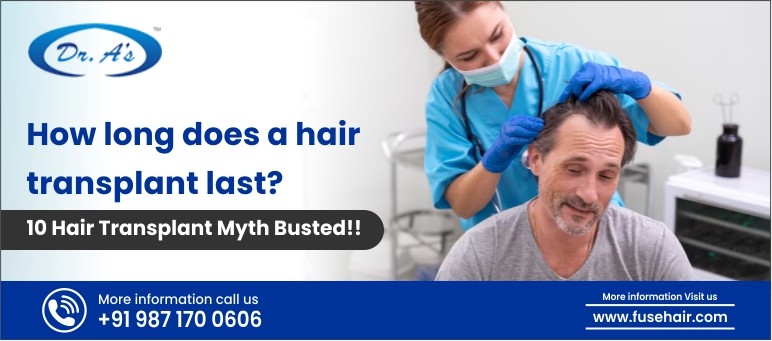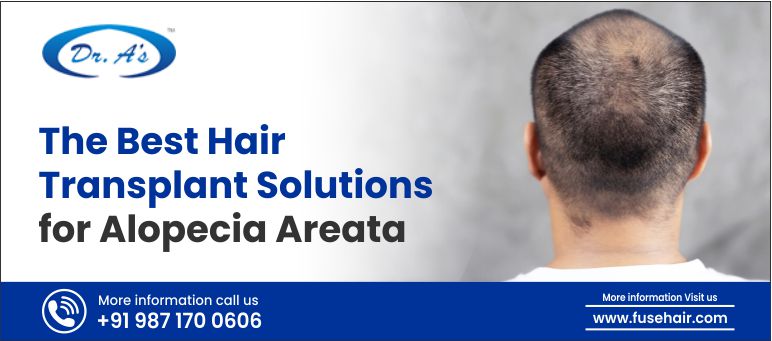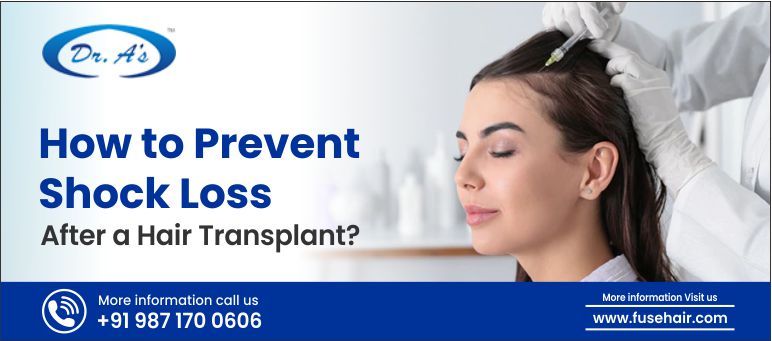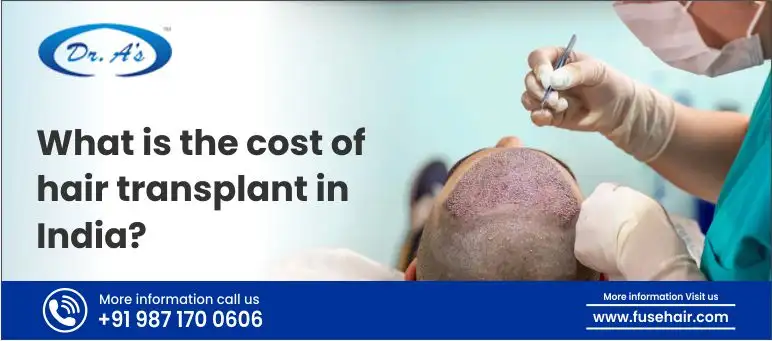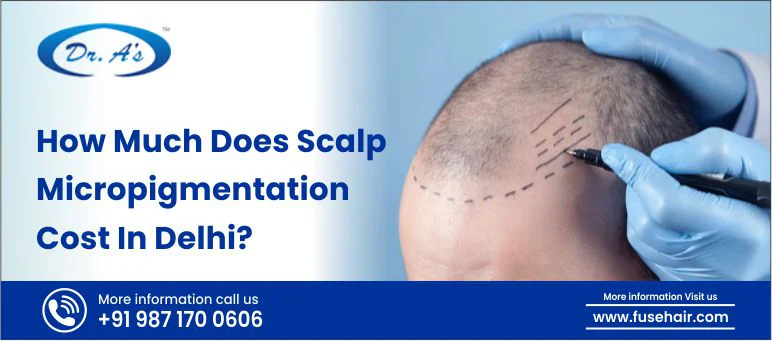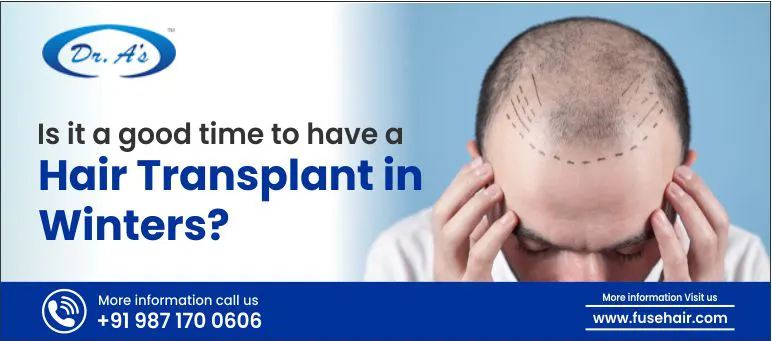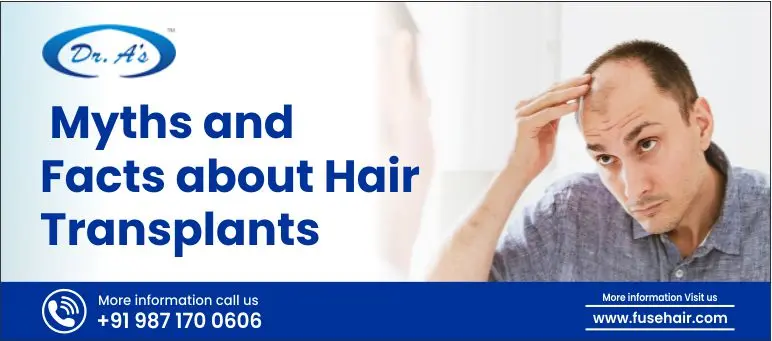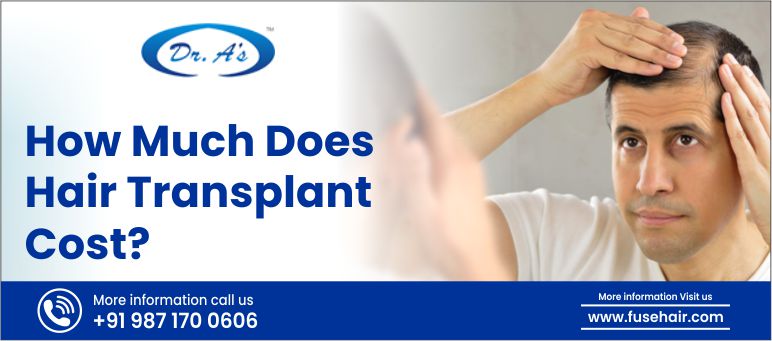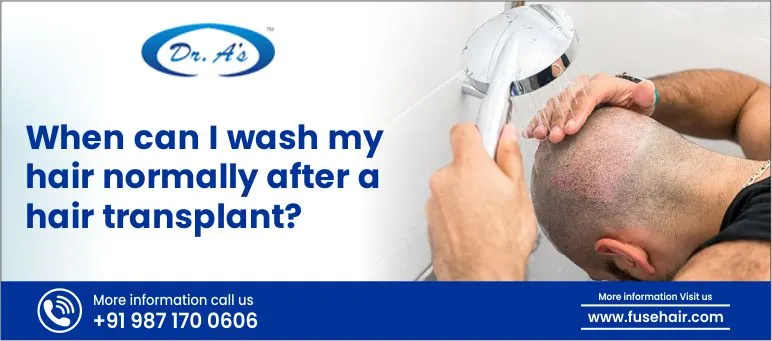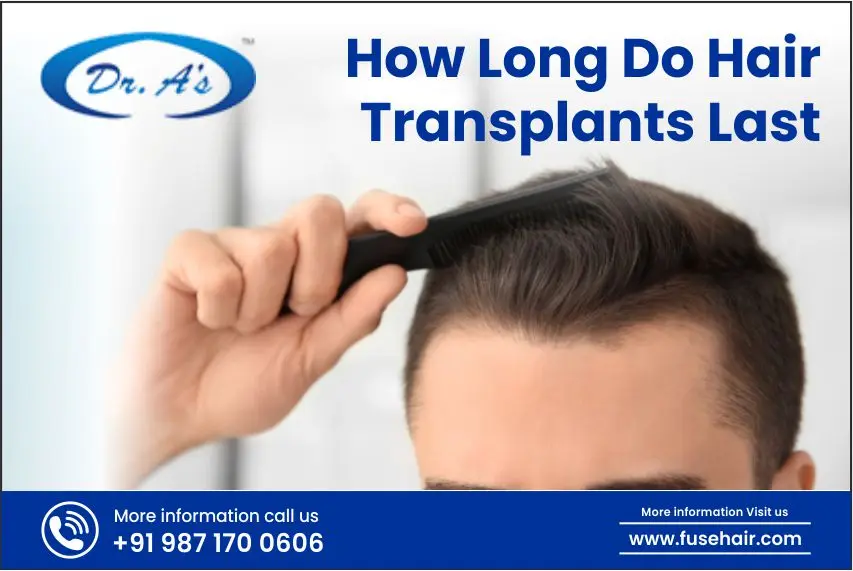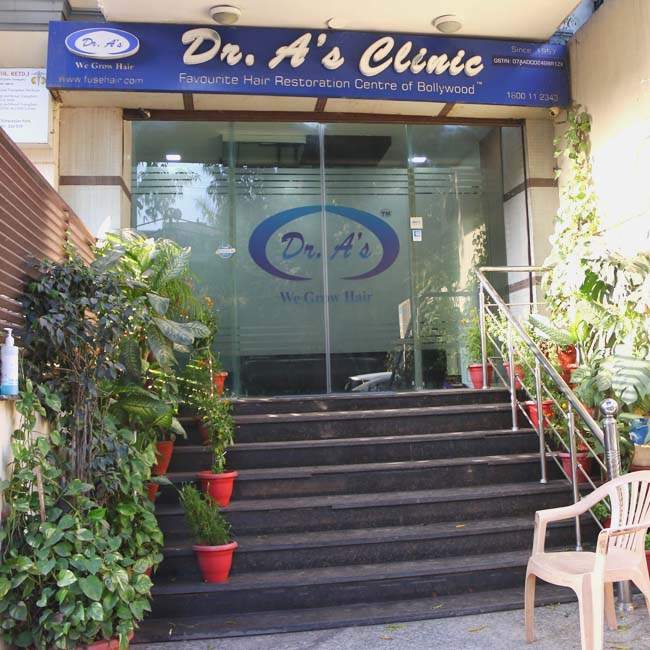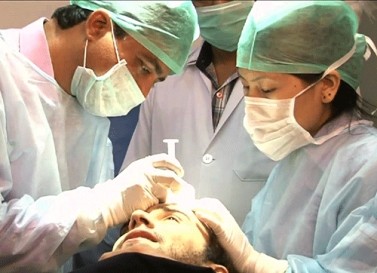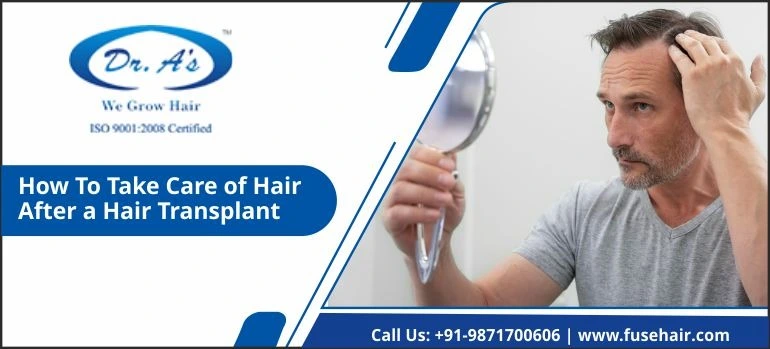
A considerable number of men experience hair loss with age. Hair loss may start as soon as one hits puberty and may prolong by the age of 40. Hair transplant is the gateway for many suffering from severe hair loss. Since hair loss occurs due to the damaged follicles, replacing it with healthy ones will restore the growth of hair. Hence, healthy follicles from the donor site are transferred to the bald area through surgical procedures by a hair transplant expert. However, it is equally important to take several precautions after hair transplant for an effective outcome.
This short discussion will focus on some of the key routines to follow and precautions to be taken after hair transplant procedure for faster healing of the scalp and maintaining the health of the follicles.
Pre-hair care will allow the hair transplant process to occur smoothly and avoid any risk or side effects from the procedure. Hence, it is suggested to follow some of the routines a few weeks before the hair transplant procedure such as avoiding smoking and few medications, eating healthy and less spicy foods, reducing caffeine intake, and washing hair with mild shampoo. However, there are few mandatory after hair transplant precautions one needs to pay attention to, for its effective outcome.
We will discuss some of the relevant questions related to hair transplant and know what precautions should be taken after hair transplant.
How does Recovery After a Hair Transplant Look like?
You will experience gradual and positive changes with the growth of hair after some weeks and months of the hair transplant procedure. Initially the loss of transplanted hair is expected due to the trauma caused during extraction and fixing procedure. However, our need is to get the healthy follicle at the right place and maintain its property. This usual hair fall is seen between 1-5 weeks after the hair transplant procedure. During this week the normal daily activity is carried out and one can even return to work a few days after the treatment. With the advanced technique of hair follicle extraction combined with the skill of the surgeon one would expect a little soreness and redness at the site of transplant. However, this will go away within a few days as the follicles get adapted to the scalp.
The recovery within each week or month can be highlighted in the following table if proper precautions are taken after hair transplant.
| Recovery period | Expected results | |
| 0-3 Months | Week 1 | Temporary growth of transplanted hair |
| Week 2 | Loss of transplanted hair is expected. | |
| 3-6 Months | 3-4 Months | New hair starts to grow but is more fine and curly. |
| 4-6 Months | Hair grows lengthy and becomes thicker but could see patches of hair due to different growth periods. | |
| 6-9 Months | Hair bursting stage with noticeable hair growth and thickening. | |
| 9-12 months | Hair thickness increases further and mimics the donor hair completely. | |
What precautions to take after a hair transplant for better results?
Nearly 80% of men are affected with baldness by the age of 50 years – a report revealed by American Hair Loss Association (AHLA). Hair transplant surgery has greatly provided a long term solution for hair loss and hair thinning in both men and women.
The lingering question for many is what precaution should be taken after a hair transplant? The effectiveness of any procedure warrants the need of proper post surgery care. Hence taking proper precaution after hair transplant is equally important. Maintain a positive approach and don’t overlook the key steps to be followed after the procedure. Some of the precautions to be taken after hair transplant can be highlighted in the following point.
Do’s:
- Keep yourself hydrated: Drink lots of water. This also helps with swelling caused by the needles injected in the head.
- Keep the newly grafted area moist by applying ointment.
- Keep your head elevated: One of the key precautions to be taken after hair transplant is to sleep with your head elevated. If follicles are extracted from the back of your head then you should be cautious about keeping that area protected against rubbing on the pillow. Elevating the surgical area will keep the head up even when you are sleeping.
- Sleeping on your back: In most cases of hair transplant the temples are treated for hair restoration and you should not sleep on your forehead. Sleep on your back and use the help of pillows to support your head.
- Use medications: Anti-inflammatory and antibiotics will help ease the swelling and prevent any infections to your scalp.
Don’ts:
- Vigorous exercise: It should be avoided after the procedure to prevent excess pressure on the grafts or popping out of the grafts.
- Certain medications: Blood thinning medicines like ibuprofen or aspirin should be avoided a few days before and after surgery as it may cause swelling. As part of after hair transplant precautions, few antibiotic and anti-inflammatory medications are allowed for the swelling.
- Washing of your hair: The first wash can be done as early as 12 to 18 hours after your hair transplant procedure.
- Wearing a hat or helmet: Doctors suggest to avoid putting pressure on the scalp for some initial days after the procedure. Usually it takes 3 days for the follicles to settle in and adapt with the scalp. Hence, it is advised to wait 7-10 days after the transplant to wear a cap and almost 4 weeks to wear a helmet.
- Direct exposure to sunlight: A transplanted scalp is more prone to sunburn than normal scalp. Hence, avoiding direct sunlight is of utmost importance for a few weeks.
- Use of sunscreen: The transplanted area needs to be protected from excess sun exposure so for that a good SPF sunscreen should be applied.
- Drinking alcohol: A thorough blood supply to the scalp will heal the transplanted area faster. Alcohol affects the blood flow to your scalp and should be avoided for at least two weeks after the surgery.
- Having sex: Sexual activities are not advised for few days after a hair transplant operation as it changes the blood pressure and interfere with the blood flow to your scalp.
The most troublesome part for many is to identify a correct sleeping position as after the transplant you don’t want to put pressure on the bruised areas. Hence, sleeping on a recliner or in an upright position is recommended especially for at least a week after the surgery.
If you are sleeping on a bed, use a pillow properly to keep your head elevated as it will ease the swelling. Avoid tossing and rolling on a pillow as it will scratch the already sore area. In some cases little leakage from the scalp is expected. To avoid staining your pillow, cover it with towels.
After the hair transplant procedure, it is expected to see some scabs or dried blood on the scalp. Shampooing will help with cleaning this area, you can wash gently 2 days after the procedure and perfectly 10 days after surgery. However, it is important to use mild SLS free shampoos and avoid any harsh chemicals or conditioners. Avoid using too cold or too hot water and go with gentle massaging.
After hair transplant precautions also help in managing swelling as the fluid build up needs to be eliminated by the body gradually to avoid any infection. Keeping your head elevated and using anti-inflammatory medication will help reduce the swelling. However, if redness and swelling persists for a few weeks after surgery, it is recommended to consult a doctor.
How Can You Manage Discomfort And Swelling?
You may experience discomfort and swelling after you are done with your hair transplant. Your hair specialist may prescribe pain relievers and anti-inflammatory medicines to help you bear these symptoms. Cold presses on the affected area are also a great way to manage discomfort and swelling.
Following your specialist’s guidance, advice, and prescribed medications will help you recover faster and minimize the chances ofincreasing discomfort. Most patients have reported their discomfort subsiding merely within a week, while others have it for just a week and a half before they can resume their daily lives. However, none of these symptoms overshadow the primary benefits and effects of a hair transplant.
What Are The Ways To Avoid Damage To The Transplanted Hair?
There are certain strenuous and risky activities that you need to avoid during the first few weeks after a hair transplant. Some common activities to avoid include-
- Strenuous activities like lifting, vigorous exercise, and mentally draining activities.
- Saunas and hot baths can steer the risk of further swelling; avoid them until your specialist says you can go for them.
- Hair treatments like colors and dyes need to be avoided at all costs until you are told it is safe.
- Swimming can also cause bacterial infections in the area, so you need to avoid it for several weeks.
What Is The Role Of Nutrition And Hydration During Recovery?
It is extremely important to take care of nutrition and hydration during the recovery period, just as you will take care of taking the right medicines. This not only boosts the speed of the recovery but also ensures good hair growth in the long run. If you do not already take it, start with a balanced diet that is rich in vitamins, proteins, and minerals.
Include foods rich in biotin, Vitamin E, Vitamin D, and Omega-3 fatty acids to ensure your hair flourishes with time. Recovery is made significantly easier when you eat well. You can discuss dietary recommendations with a healthcare specialist to realize and address any deficiencies that you may have.
Takeaway
Important decisions in your life are hard to make especially when it comes to aesthetic improvements. But what makes you more confident is the expertise of the hair transplant surgeon and his successful outcomes.
As the saying goes ‘people with the best advice are usually the ones who have been through the most’, the best advice and treatment plans suggested at A’s clinic comes from immense knowledge and positive impact made by Dr. Arvind Poswal who is recognised for holding World’s No. 1 position for the maximum number of documented successful cases for 10 consecutive years. In addition, his research and studies have led to the invention of stitchless FUSE/FUE, body hair transplant, and beard hair to scalp transplant which have earned him the title of ‘Father of Hair Transplant in India’.
FAQs
When should I apply oil after a hair transplant?
Some oil contains healing medication and can be applied to the donor area 2 weeks after surgery. Coconut and almond oil are recommended for relieving itchiness and drying of the scalp. However, for the recipient area, extra precaution is needed so as not to disturb the hair follicles. Hence, applying oil after 2 weeks is safe to do.
Mild shampooing will help in removing scabs or dried blood and keep your scalp clean. However, any massaging or using non-prescribed topical ointment should be avoided for two weeks after the surgery. Moreover, harsh shampoos for dandruffs or conditioner should be avoided for the first 10 days for healing to occur better.
Healing of the transplanted area takes at least 6 months. Till then you may experience some hair fall which is completely normal. What we have to understand is, it is the follicles that need to stay strong and healthy for the continuous growth of new hair.

